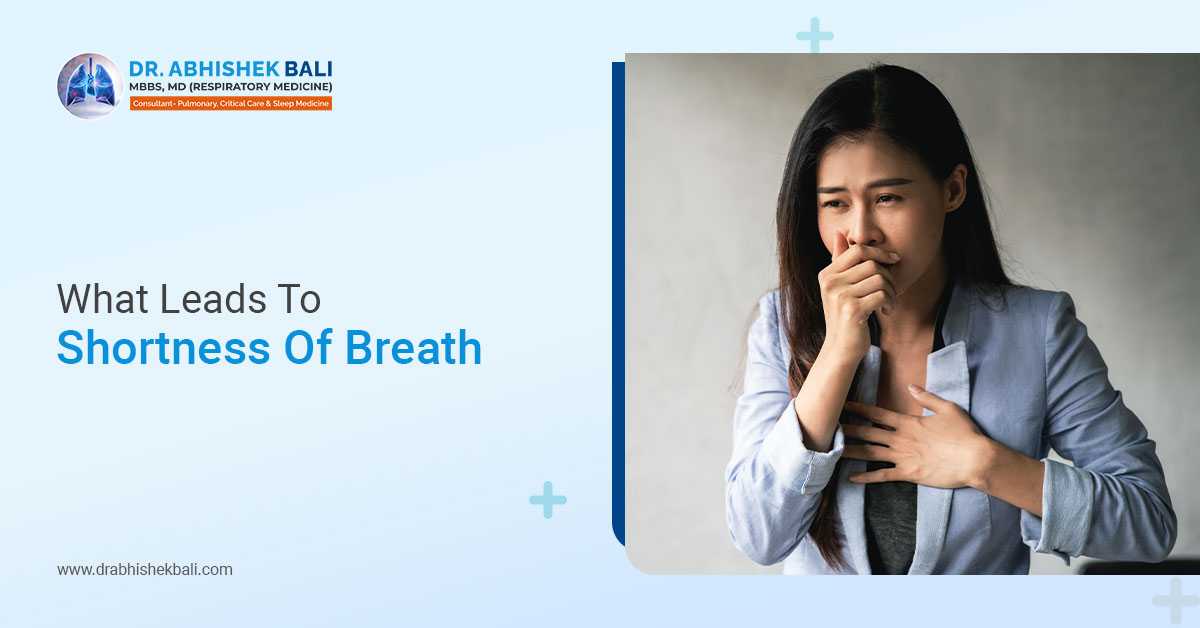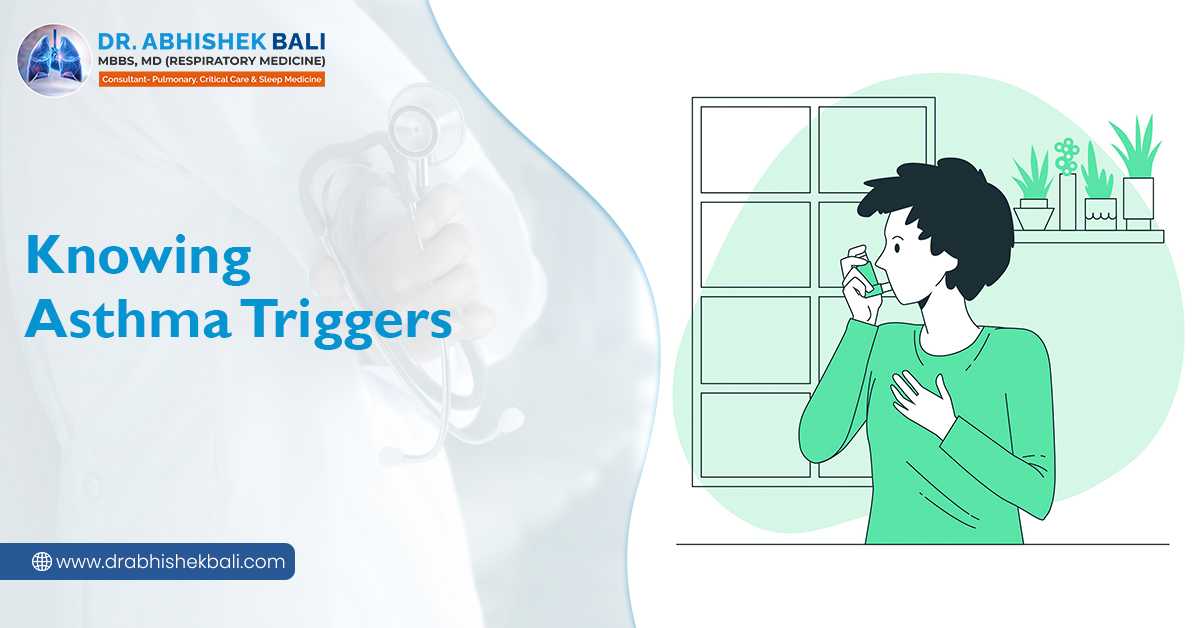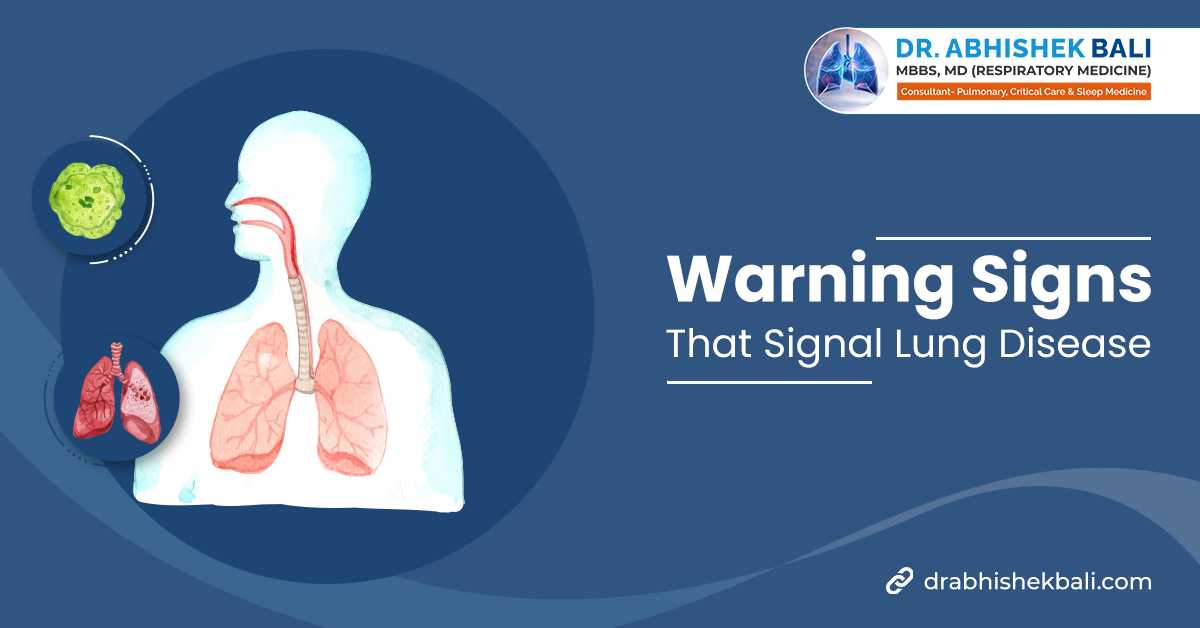We can’t live without breathing, but how many times do we really focus on our breathing? This entire breathing function relies on the lungs, they transfer oxygen right from the air to our red blood cells. So it’s clear enough that if there is any disruption takes place in our lungs it will directly affect our breathing function, which is life-threatening. We often miss out on the chance of guessing that a mild cough, mild wheezing, can be certain signs of lung infection that may lead to chronic lung disease. Without any delaying consult your doctor if you feel any disturbance while breathing, consult Dr. Abhish Bali, the leading pulmonologist in Siliguri.
Table of Contents:
- Risk factors for lung disease
- What are the warning signs of lung disease?
Risk factors for lung disease
Numerous risk factors can cause you severe lung disease, including:
- Smoking
- COPD ( Chronic obstructive pulmonary disease)
- Virus & bacteria attack on lungs
- Pneumonia
- Asthma
- Heart disease
What are the warning signs of lung disease?
Certain signs are highly indicative of your lung disease, these are:
- Chronic cough
- Shortness of breath
- The feeling of not getting enough air
- Blood in cough
- Chronic chest pain
- Chronic mucus
- Chronic Cough: when your cough stays for more than one month, it can be a clear indicator of your upset respiratory system. Consult an expert.
- Shortness of breath:it may occur due to many reasons such as performing heavy exercise, living a sedentary lifestyle, or because of emotional stress, pneumonia, low blood pressure, heart attack. However, consulting a pulmonologist is the right choice for you, if you’re undergoing a persistent condition of shortness of breath.
- The feeling of not getting enough air:also known as labored breathing, it’s a condition when you can’t inhale the right amount of air that your body requires. It can be alarming for your health, you may also experience dyspnea with labored breathing together, which requires emergency management. Talk to your doctor, take action immediately.
- Blood in cough:seeing blood whenever you cough? Yes, it can be alarming too, visit a pulmonologist and take early precautions.
- Chronic chest pain:experiencing chest pain is often associated with cardiac disease. If you’re undergoing prolonged chest pain, you should simply visit a pulmonologist. And your doctor will take all the responsibility to bring you out of your discomfort.
- Chronic Mucus:excess mucus deposits in your lungs clogs all the airways, causing trouble breathing. see a pulmonologist for a clear understanding of lung disease.




